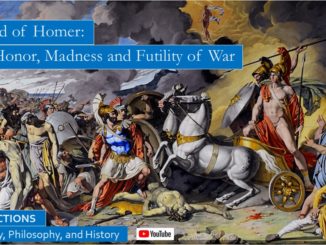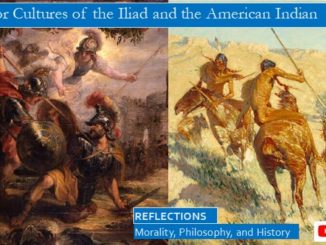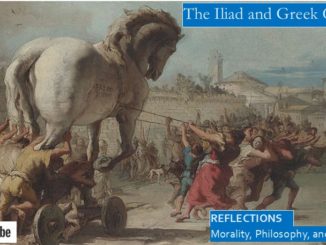
The Iliad Blog 7, the Deaths of Patroclus and Hector
The embassy to Achilles ends with them leaving not a warrior
but simply a bard strumming his lyre alone on the shores of the sea.
The battle lines sway back and forth, Odysseus and Ajax spy a Trojan spy,
and cut him down, then the Trojans in his advance camp.
The battle wages, many warriors fall, many warriors are wounded and healed,
as Professor Vandiver notes, they either or suffer minor injuries,
the heroes of the Iliad never suffer humiliating injuries. The Trojans fight their way to very walls of the Greek camps,
which was really a fortified fortress with palisades of sturdy timbers,
surrounded by a deep ditch dug to furnish earth for protection. […]



